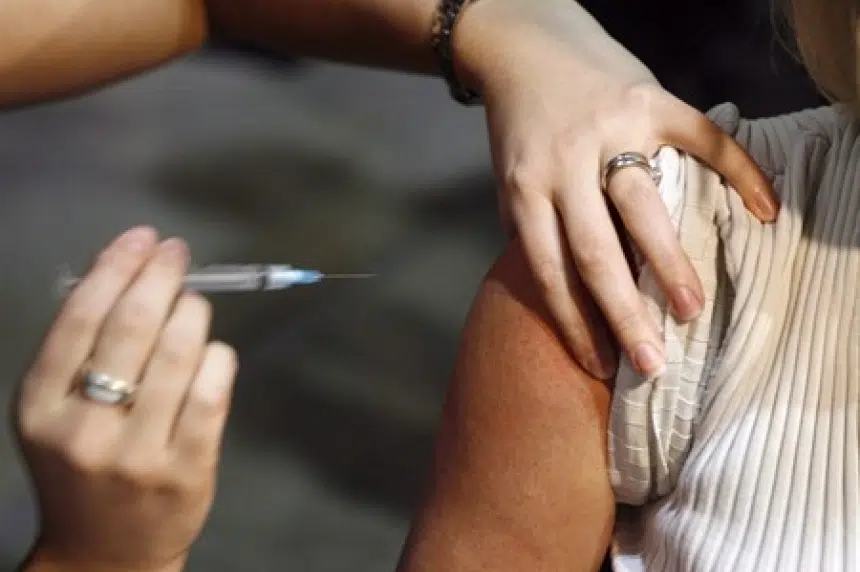The vast majority of people in Saskatchewan can pat themselves on the back for getting a needle in the arm.
The province kicked off National Immunization Awareness Week on Thursday by encouraging members of the public to stay up to date with their vaccinations.
Health Minister Jim Reiter said the vaccination rates in Saskatchewan remain strong but emphasized the importance of remaining vigilant in keeping rates high.
As the anti-vaccination movement grows, so have the number of measles cases in Canada. The latest case of measles in British Columbia brings the total to 27 since February, with other cases recorded this year in Alberta, Ontario and Quebec.
While encouraging the benefits of vaccinations, Reiter said science is clearly on the government’s side.
“A certain percentage of people like to delve into conspiracy theories so it’s always a concern. I think the best thing we can do as a government is, like I said, remain vigilant,” Reiter said during a media event Thursday.
In Saskatchewan, 88 per cent of children have received one dose of measles vaccine by the age of two. By the time they start school, 88 per cent have received one dose while 93 per cent have received two. By the end of high school, the vaccination rate is at 94 per cent.
When asked if the government would consider penalties against people who are not vaccinated, Reiter said no serious discussions have taken place because of the high vaccination rates. But he added that the province wouldn’t rule it out if the rates dropped low enough.
Saskatchewan’s chief medical health officer, Dr. Saqib Shahab, said the province hasn’t seen any confirmed cases of measles since 2014. One of the big risks is the importation of measles by travellers.
“Every time someone who’s infectious travels through an airport or public place, the measles virus remains in the air for two hours,” said Shahab.
In 2014, three cases of the importation of measles led to secondary cases spiking to a total of 16 in Saskatchewan. Shahab credits the high vaccination rates for keeping the virus from spreading any further.
With a global rise in measles cases, Shahab said it’s reassuring to see parents wanting to get their kids vaccinated when they hear about the few who don’t.
“They’re saying, ‘I don’t want my child to get measles because the families and children around me chose not to get vaccinated,’ ” said Shahab.
Shahab stressed that science is on the government’s side, with absolutely no correlation between vaccinations and autism. He encouraged parents with questions to seek out answers from their physicians or health-care providers.











